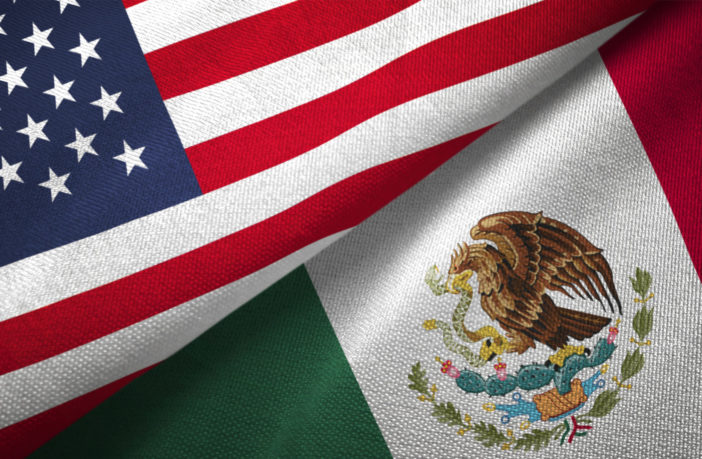“I will build a great, great wall on our southern border and I’ll have Mexico pay for that wall.”
This signature line came from President Donald Trump during a border security conversation in 2015. Since taking office in 2016, the Trump administration has built more than 100 miles of new border wall and is likely to produce close to 500 miles by the end of the year. But critics of the administration suggest that Mexico has not paid a single cent towards the new wall. In fact, this idea, of whether Mexico is paying for the border wall, was recently discussed in House Homeland Security Committee meeting.
So the question remains, is Mexico paying for the southern border wall? The short answer: Yes.
Mexico has paid for a wall at our southern border—in many ways. It may not be the tall, 30-foot concrete wall that the media portrays, but it is still a barrier that deters harmful individuals from entering the country. This figurative “wall,” which has been nearly as effective as physical barriers, consists of numerous immigration enforcement actions undertaken by the Mexican government. These include deployment of Mexican National Guard units to the borderlands, the deportation of migrants apprehended in Mexico to their home countries, and participation in the Migrant Protection Protocols (MPP). All of these items are largely, if not fully funded, by the Mexican federal government and ultimately help to secure our southern border.
Mexico’s wall began with a large deployment of its federal security forces to its northern and southern borders to combat illegal immigration in 2019. Mexican authorities sent 15,000 troops to the U.S.-Mexico border, while sending roughly 2,000 to its southern border with Guatemala. This deployment also included sending a significant number of helicopters and boats to help Mexico patrol its borders more effectively.
Mexico then ramped up its “wall” by chartering deportation flights to outside countries like India. This served to deter illegal aliens from transiting through Mexico, especially those from outside of the Western Hemisphere. In one case, in the fall of 2019, Mexico flew more than 300 Indian migrants back to New Delhi. The flights were paid for by the Mexican government and contributed to the metaphorical wall that Mexico is now constructing through better immigration policies.
Mexico’s implementation of the MPP, a Trump administration initiative that requires migrants seeking asylum in the U.S. to wait in Mexico until their court date in the U.S., has also contributed to the metaphorical wall. Asylum seekers wait in facilities near the border that are funded by the Mexican government and provide housing, food, and other resources. These protocols have helped fuel a reduction in illegal alien apprehensions along the border, with the number dropping from 144,000 in May 2019 to 37,000 in February 2020.
Aside from the initiatives described above, the Mexican government has also pledged to contribute $30 billion dollars for Central American development, with the goal of improving economies and infrastructure, in order to keep migrants from fleeing their native countries. This in itself serves as a type of virtual wall.
Simply put, a border wall can consist of more than a physical wall made out of concrete and steel. A wall is any type of barrier that deters unlawful border crossers. Mexico’s National Guard deployments, deportation flights, Migrant Protection Protocols and foreign aid do just that. And they do it without passing costs on to U.S. taxpayers.




